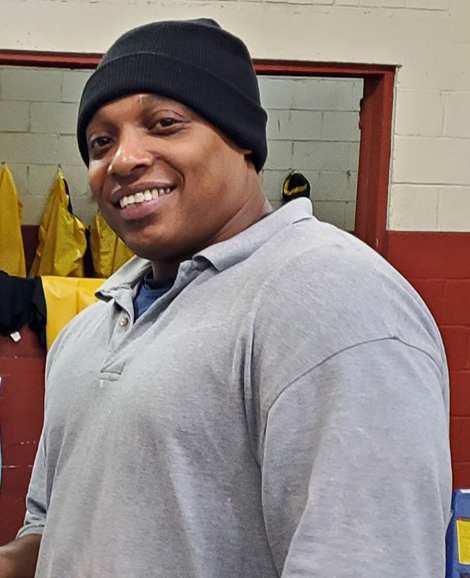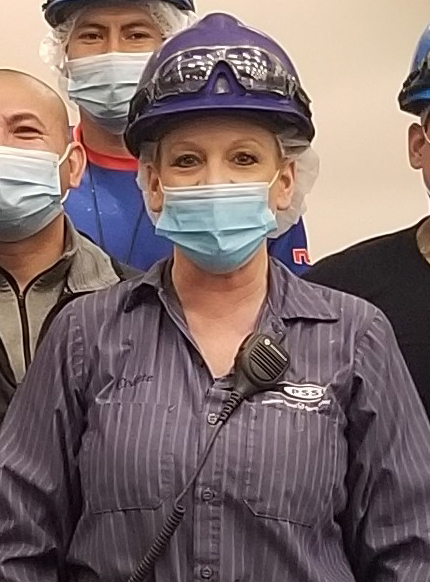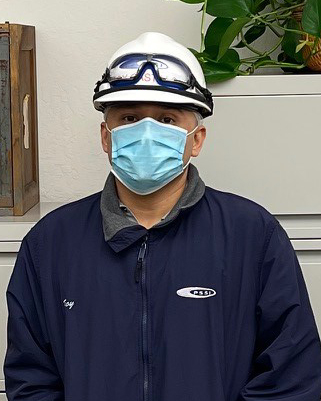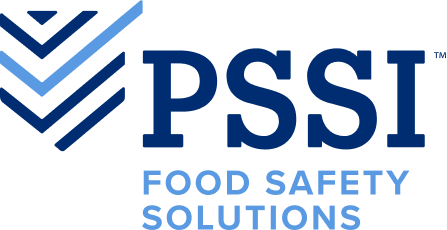Protecting our nation’s food supply during a global pandemic is nothing short of heroic. Our PSSI team members stepped up and continue to show up to ensure our customers’ facilities are clean and safe for production.
Our frontline leaders play a vital role in keeping team members safe, building relationships with customers, communicating with plant management, and driving our food safety culture. Instead of capes, these heroes wear hard hats.
Food Safety Hero: Lason, Site Manager

A facility was struggling with food safety issues before PSSI came on scene and took control of the sanitation program. Under the leadership of Site Manager, Lason, they were able to put new, pre-inspection processes in place.
“We added a second and third wave of inspection before QA comes in,” said Lason. “Having our supervisors and leads look at our equipment before QA comes in helps reduce the number of findings.”
Additionally, Lason works to educate his team on the important role they play when it comes to food safety.
“I tell my team ‘without us, this plant would not run,’” said Lason. “I remind them that the food coming out of this plant might end up on their tables or their families’ tables, so it’s crucial that we do our jobs consistently every single night.”
Relationships with his team and open communication with the plant management has added to Lason’s success.
“I have an open-door policy and a great relationship with the plant’s QA,” said Lason. “We work together because, ultimately, we have a common goal- to get safe food out of this facility for our families to eat.”
And the customer has noticed all the progress Lason’s team has made.
“Lason and PSSI have changed the standard of clean and everyone can tell,” said the customer. “The food safety accomplishments are having a rippling effect throughout the plant. Everyone on both sides of business is proud of their continued success in keeping food safe.”
Safety Hero: Colette, Site Manager

When it comes to safety, you can protect a team member by onboarding, training, running drills and reviewing safety policies, but as humans, they can still make poor decisions. In this industry, equipment is often cleaned while energized and one bad decision can result in life altering injuries.
Site Manager, Colette, decided to take a step towards a safer workplace by finding a way to clean her plant with machines powered down. She put breaders and belts on supervisor control where employees are not able to turn them on. They clean belts in place and then flip them over to finish cleaning them.
“Cleaning while powered down is somewhat unheard of and our team members were unsure at first,” said Colette. “It did take us a couple of weeks to implement our new way of cleaning but after we passed pre-ops and swab tests using our new cleaning method, our team was on board. Now, when team members come into the plant and hear a belt running, they say, ‘wow, we need to turn that off!”
This plant mastered cleaning equipment while shut down and they are sharing their tips with other PSSI teams across the nation.
“Safety is no secret,” said Colette. “On our divisional calls, we share our processes on how to clean certain types of equipment while shut down. Overall, we are trying to eliminate more and more run time from the cleaning process.”
By shutting down 95% of equipment for cleaning, Colette’s team has achieved 365 days accident free.
Food Safety Hero: Roy, Divisional Food Safety Manager

A brand-new organic food production facility was still undergoing construction when PSSI’s food safety team came onto the scene. Even though the plant wasn’t ready for sanitation, the team worked with the customer to find ways to help with construction clean-up.
At any new facility, one of the first things PSSI does is create custom cleaning procedures for the specific equipment in that space. This process got sped up when the customer explained they had two important audits in the coming days.
“They notified us on a Friday that they had both kosher and organic audits the following week,” said Roy, Divisional Food Safety Manager. “They asked us to get our SSOPs ready. We dropped everything and spent the next 48 hours over the weekend preparing our documents for the audits.”
“When the customer asked PSSI to present during the kosher audit, Roy agreed to help in any way he could. During the audit, the Rabbi reviewed every procedure and went through every document. Finally, he concluded that everything met his standards”
“Next, they were up for an organic audit. When the customer’s procedures included a chemical that was not approved for organic use, they asked PSSI to present their SSOPs, which had the correct chemicals listed for use. Again, the PSSI team helped the customer pass this audit”
“First impressions are so important, especially during operation start-ups,” said Roy. “At PSSI, we fully support our customers’ needs and provide value from the very start to create strong relationships for the future.”
